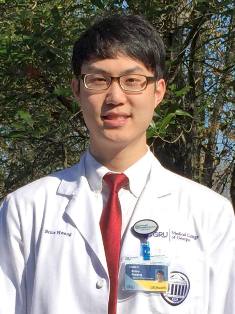Throughout four years of medical school, students are fortunately provided with one summer vacation. It is a potential time for relaxation and enjoyment of what life has to offer. Spending time with friends and families, traveling to different parts of the world, or doing anything remotely distant from studying would be time well spent. However, as residency matching becomes more competitive and the number of applicants grows, summer vacation is no longer a time for "doing nothing." One of the more popular options of spending a productive summer is doing research. The number of medical students participating in some form of research is growing, and research is becoming an important component of medical education. In addition, it can be a great opportunity to learn something outside of school while also strengthening your credentials.
Below is a list of suggestions that I'd like to share with all future and current medical students:
Start Early—The number one recommendation I can give first-year medical students interested in participating in research is to start early. I cannot emphasize this enough. What do I mean by starting early? Begin thinking about what field of specialty you want to do research in prior to matriculation, and then start reaching out to potential mentors once school starts. This will show the mentor that you are organized, prepared, serious, and really interested in working with them. Many students wait until the last minute and rush to get involved in research projects unrelated to their specialty of interest or topic.
Research, Research, Research—It is absolutely essential that you know your options. Just like looking at a restaurant menu and deciding what you want to eat, you need to do the same when selecting a mentor and research project. At first glance, stem cell research may sound very interesting, but take the time to look at other options (unless stem cell research is really your passion). You will be surprised by what your school or external institutions have to offer. After narrowing down the list of potential mentors, study their previous works. That way, when you meet your mentor, you will be prepared to answer any questions they may have as well as be able to ask them questions about their project. This will make a great first impression. In addition, choose carefully where you want to do research. Do you want to stay in your home medical school? Or go to a different part of the country? External programs have earlier deadlines and will require filling out applications and requesting recommendation letters.
Know Your Field of Specialty—It will be advantageous to engage in a research project related to your specialty of interest. Getting involved through research can benefit you in many ways. You will get the opportunity to develop a close relationship with your mentor. During preclinical years, students are often limited in terms of interacting with physicians in a variety of specialties. We may get a chance to hear a lecture on congenital birth defects by a pediatric surgeon, but close interaction with a surgeon will not occur until rotations-especially those that are in competitive fields, such as cardiology or plastic surgery. As a result of your research, you will be exposed to your specialty of interest and get to meet other people in the same field. What could be greater than that?
Dress to Impress—If you were able to successfully set up a meeting with your potential mentor, dress professionally. Wear your white coat, and act appropriately. Just like at medical school interviews, you want to portray a positive image when meeting your future mentor. Furthermore, take the time to purchase a small notebook that you can carry. When I first met my mentor, he immediately began talking about his projects. If I did not write notes about what we discussed at our first meeting, I would have been overwhelmed by all the information that he presented to me.
I like to end by saying "the early bird gets the worm." Knowing early whether you want to do research can improve your odds of finding a superb mentor and fascinating project. I encourage everyone to give research a chance. Though you will be sacrificing your last summer vacation, having some research under your belt can only help you. Medicine is a dynamic field. Therefore, it is crucial that you develop awareness of medical advancements and research. This information is solely based on my personal experiences and is shared only to help all medical students. I hope that these tips will help you and others find the best possible research mentor and project.
|
Brice Hwang |
 |

